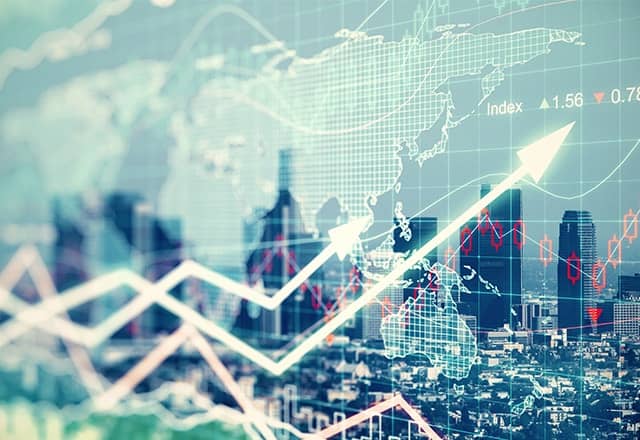(AOF) – Air France-KLM announces an investment of 4.7 million dollars (4.39 million euros) in the American company DG Fuels in order to support the completion of the development work necessary to achieve the final investment decision” concerning the group’s first plant, based in Louisiana and specializing in sustainable aviation fuel (SAF). The airline group has acquired an option to purchase up to 25 million gallons (75,000 tonnes) of SAF per year from 2029.
This option is in addition to the long-term purchase contract announced in 2022 by Air France-KLM and DG Fuels. Air France-KLM specifies that this is an important new step towards achieving the objective of incorporating at least 10% of SAF by 2030.
In 2022, the airline group was the world’s leading user of SAF, with a volume representing 17% of global production, compared to 3% of global consumption of conventional kerosene.
It was in October 2022 that Air France-KLM announced the signing of a supply contract with DG Fuels covering 600,000 tonnes of SAF, with deliveries planned between 2027 and 2036.
AOF – LEARN MORE
– European number 1 in air transport, born in 2000 from the merger between Air France, created in 1933, and the Dutch KLM, founded in 1019 and with 3 strong brands: Air France, KLM and Flying Blue, loyalty program;
– Turnover of €14.3 billion achieved 86% in passenger transport and cargo, then maintenance for 7% and the subsidiary Transavia for 7%;
– Business model based on optimization of fleet use, improvement of operational performance, simplification of structures and connectivity on the one hand, growth of the short and medium-haul network and development long-haul through alliances (alliance of 19 aviation companies in SkyTeam) and partnerships;
– Capital held 28.6% by the French State, 9.3% by the Dutch State, 9% by CMA-CGM, 4.7% by China Airlines and 2.5% by Delta Airlines, Anne-Marie Couderc chairing the 19-member board of directors, with Benjamin Smith serving as general manager;
– Strengthening the balance sheet: equity still negative at €2.5 billion but net debt reduced to €5.5 billion at the end of March with leverage of 1.5 and liquidity of €9.7 billion.
Challenges
– Transformation strategy via organization, cost reduction, fleet management and transfer to Transavia of the French domestic network outside Marseille, Nice and Toulouse:
– debt leverage reduced to 3-3.5% in 2023,
– operating margin of 7 to 8% in 2024;
–
doubling of the contribution of the Flying Blue loyalty program to the group’s margin;
– Innovation strategy:
-serving the attentive relationship with the customer (massive use of voice assistance techniques, artificial intelligence, blockchain and augmented reality),
– towards clean aviation, support for sustainable fuels, electric driving for ground towing, atmosphere monitoring, etc.;
– Environmental strategy aimed at reducing CO2 emissions by 50% (vs. 2005):
– Climate Plan with 6 priorities including fleet modernization (€2.5 billion invested in aircraft consuming 25% less fuel), sustainable fuels or SAF (3% in 2023, 10% in 2030), compensation plan with the CORSIA system;
– fight against noise pollution,
– 60% recycling of hazardous waste in 2020 and reduction, by 2030, of residual waste by half and commitment to biodiversity;
– Group capacity at 89% of the 2019 level and load factor at 88%, close to the 2019 level (90%);
– Increase in kerosene prices offset by cost savings;
– Increase in unit revenue per passage, from €7.3 at the end of September.
– L
renewable lines linked to sustainable development
;
– Relaunch of cargo activity, in partnership with CMA-CGM.
Challenges
– Monitoring of activity with occupancy coefficient (86.2%) and unit revenue (€8.2) indicators;
– Inflation of personnel, handling and overhead costs;
– After full reimbursement of state aid, continued strengthening of the balance sheet via quasi-equity financing of the group’s subsidiaries;
– After a 42% increase in revenue and a reduction in operating loss on 1
er
quarter,, vision 2023:
– seat-km capacity of 95%, vs 2019, as of 2
n/a
half-year, including 135% by Transavia,
– stable unit cost,
– €3 billion in investments and operating profit of €900 million;
– Absence of dividend for 16 years.
Results weakened again for European companies
While fuel represents up to 35% of their costs, professionals estimate that European airlines are not expected to return to profit before 2023 or 2024 at the earliest. These players predict that energy prices would remain high at least until 2023. The International Air Transport Association (IATA) announced a forecast of cumulative losses of $9.7 billion in 2022 for airlines to across the world we will still have to wait until 2023 to see a return to profits on a global scale, particularly due to the surge in oil costs and the increase in labor costs. Positive point: travel demand seems to be resisting the uncertainties caused by the international economic and political situation. However, uncertainties regarding Covid, the war in Ukraine, as well as rising prices are increasing last-minute reservations. According to Iata, only 8% of international reservations made at the end of May went beyond September.
The social climate is deteriorating in low-cost airlines
These companies are benefiting from a very strong recovery. They had already managed to monopolize 40% of air traffic in 2021, this proportion could even rise to 50% this year. However, strike movements have affected the activity of Volotea, EasyJet and Ryanair, with confrontations over remuneration and working conditions. Generally speaking, the sector is facing a shortage of personnel. After having severely cut their workforce in 2020 and 2021, companies and airports must urgently recruit to support the resumption of activity.
